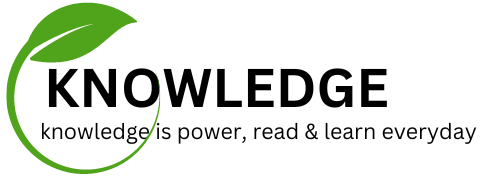1. Introduction to Effective Communication
-
- Importance of communication skills
- Benefits of mastering communication
2. Active Listening
-
- Definition of active listening
- Techniques for active listening
- Importance of listening in communication
3. Clarity and Conciseness
-
- Importance of clarity in communication
- Tips for being clear and concise
- Avoiding ambiguity in speech
4. Empathy and Understanding
-
- Definition of empathy in communication
- Techniques for developing empathy
- Understanding perspectives and emotions
5. Nonverbal Communication
-
- Importance of body language
- Tips for improving nonverbal cues
- Recognizing nonverbal signals
6. Practice and Feedback
-
- Importance of practice in communication
- Seeking feedback for improvement
- Continuous learning and growth
Learn to Talk Well: 5 Easy Steps To Great Communication

Communication is a fundamental aspect of human interaction, influencing every aspect of our personal and professional lives. Whether it’s expressing our thoughts and feelings, building relationships, or achieving success in our careers, effective communication skills are essential. In this article, we’ll explore five easy steps to enhance your communication abilities, empowering you to communicate with clarity, confidence, and impact.
Step 1: Active Listening
-
- Active listening is the cornerstone of effective communication. It involves fully concentrating on what is being said, understanding the message, and responding thoughtfully. To become a better listener, practice techniques such as maintaining eye contact, nodding to show understanding, and paraphrasing to confirm comprehension. By listening actively, you demonstrate respect, build trust, and foster meaningful connections with others.
Step 2: Clarity and Conciseness
-
- Clear and concise communication eliminates misunderstandings and ensures that your message is understood as intended. When speaking or writing, strive to be specific and to the point. Use simple language, avoid jargon or ambiguous terms, and organize your thoughts logically. By prioritizing clarity, you enhance the effectiveness of your communication and make it easier for others to grasp your ideas.
Step 3: Empathy and Understanding
-
- Empathy involves understanding and sharing the feelings of others, a crucial skill in effective communication. Cultivate empathy by actively listening to others, acknowledging their emotions, and considering their perspectives. Empathetic communication fosters trust, strengthens relationships, and promotes collaboration. By demonstrating empathy, you create a supportive and inclusive environment conducive to open dialogue and mutual respect.
Step 4: Nonverbal Communication
-
- Nonverbal cues such as body language, facial expressions, and tone of voice convey a wealth of information in communication. Pay attention to your nonverbal signals, ensuring they align with your spoken words. Maintain open body posture, make appropriate eye contact, and use gestures to emphasize key points. By mastering nonverbal communication, you enhance your ability to connect with others and convey sincerity and confidence.
Step 5: Practice and Feedback
-
- Like any skill, effective communication improves with practice and feedback. Engage in regular communication exercises, such as role-playing scenarios or participating in group discussions. Seek feedback from trusted friends, colleagues, or mentors to identify areas for improvement and refine your communication style. Embrace challenges as opportunities for growth, committing to lifelong learning and development in your communication journey.
Conclusion
In conclusion, mastering the art of communication is a journey worth embarking on. By implementing the five easy steps outlined in this article—active listening, clarity and conciseness, empathy and understanding, nonverbal communication, and practice and feedback—you can become a more confident and influential communicator. Remember, effective communication is not just about speaking well but also about listening attentively and connecting authentically with others.
FAQs
1. What are the benefits of effective communication?
Effective communication enhances relationships, fosters collaboration, resolves conflicts, and promotes personal and professional success.
2. How can I improve my active listening skills?
Practice active listening techniques such as maintaining eye contact, paraphrasing to confirm understanding, and avoiding distractions.
3. Why is empathy important in communication?
Empathy promotes understanding, trust, and connection by acknowledging and validating the emotions and perspectives of others.
4. What role does body language play in communication?
Body language conveys nonverbal cues that complement spoken words, influencing how messages are perceived and understood by others.
5. How can I receive constructive feedback on my communication skills?
Seek feedback from trusted individuals, such as mentors or colleagues, who can provide valuable insights and suggestions for improvement.



